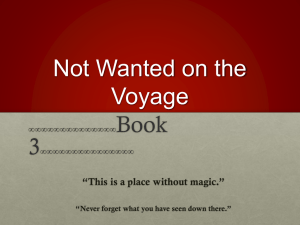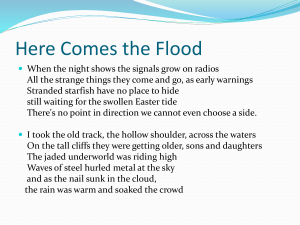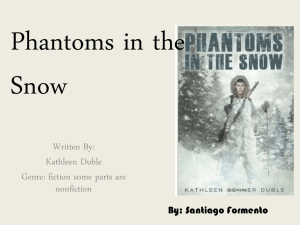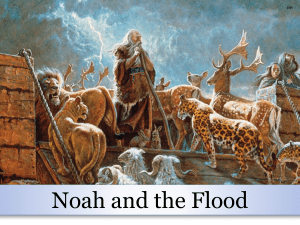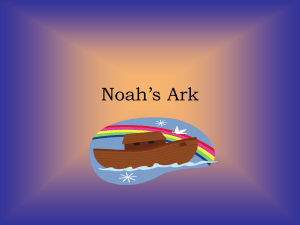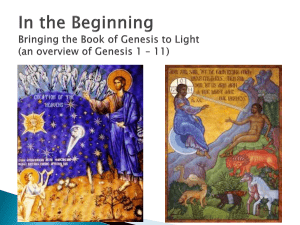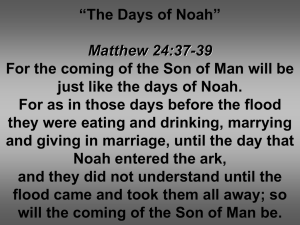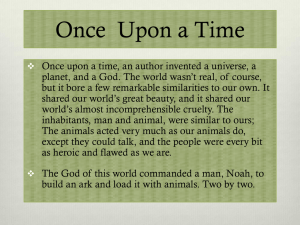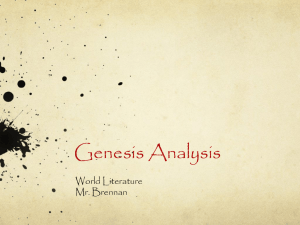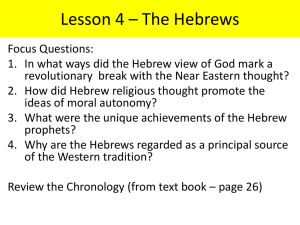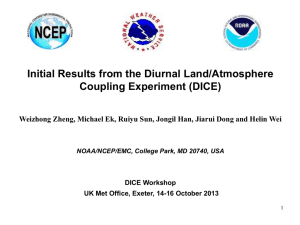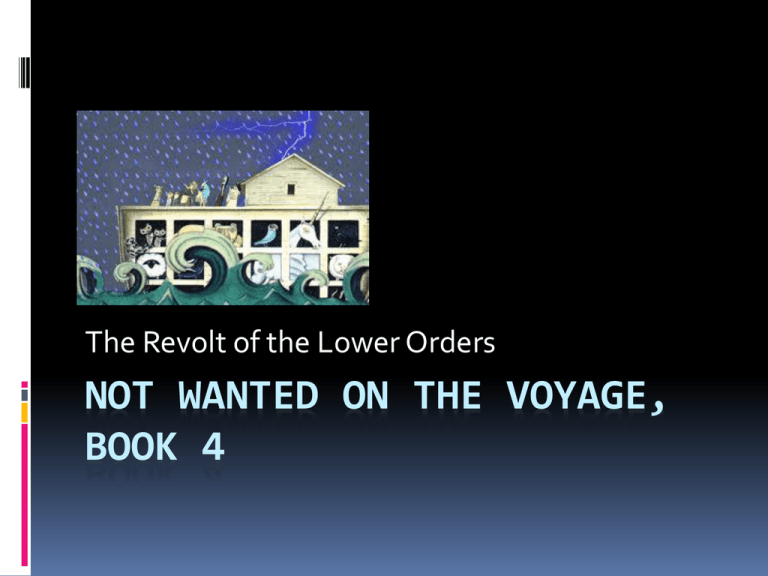
The Revolt of the Lower Orders
NOT WANTED ON THE VOYAGE,
BOOK 4
I Dance
And I Sing
And I’m a Monkey
in a Long Line of Kings
I’m just a boat on the ocean
I’m just a ship lost at sea
The Revolt of the Lower Orders
Some might argue the novel ends anti-climactically, and it does, in a
sense. We must abide with the truth that any victory clawed out by the
lower orders will be partial at best, and will come at considerable cost.
Findley is a realist. He understands that it may take a thousand years,
maybe more, to get to Lucy’s dreamed of promised land, and that
progress will be incremental.
∞∞∞∞∞∞∞∞∞∞∞∞∞∞∞∞∞∞∞∞∞∞∞∞∞∞∞∞∞∞∞∞
Besides, the Lower Orders are compelled (in a way Noah is not) to
preserve life rather than take it, though Lucy suggests that perhaps
violence is the only way to get there. They do not have the luxury of
Noah’s indifference or cruelty, and while the upper deck has severed ties
with the lower deck, the lower deck remains tied by indissoluble family
bonds: mothers and sons; brothers; sisters. Husband and wife.
I will follow you into the dark: Losses
Emma falls silent and will not eat
The Lady soon starves to death
The demons are thrown overboard
Crowe
The silver kitten
Lucy’s powers
Mottyl’s whispers
Hannah’s child
Additionally, it is troubling in Book 4 to see Lucy take
on the qualities of those she despises; perhaps this
suggests that to do battle with corruption is to risk
becoming corrupted oneself- to become what you
despise. Perhaps the greatest loss.
Gains
Emma and Crowe are saviours
the communal search for the silver kitten
Mrs. Noyes finds her voice
The restoration of light
The Revolt of the Lower Orders
Hannah and Noah are locked in the chapel
Japeth
In the final book, Noah still speaks the rhetoric of sacrifice,
miracles and redemption at whatever cost. Noah senses his
world is under attack. In this world, Japeth becomes
essential.
It is Japeth who throws the demons overboard, and who
smashes the lanterns, and who takes all the candles, and
decrees to the lower orders, “you will live in perpetual
darkness until we come to land.”
It is also Japeth who will suffer Lucy’s curse, getting no rest
from the bites and scratches he has suffered; additionally,
he will smell like the deaths of those he has killed. While his
first branding was a mark of his victimhood, this second
blight is wholly of his own making; the price he will pay for
his violence and blind adherence to his father’s ways.
Shem
Shem is another recognizable type. Though less
violent than Japeth, he too is essential to Noah’s
plans. He resembles Chaucer’s monk,
a member of a privileged order not because he
believes in its teachings but because it offers relative
ease and comfort, plenty to eat, and little labour. He
is layered in fat and going bald.
It is he who comes to the lower decks demanding the
best food. Like one of Swift’s landlords, with his
clean robes and manicured fingers, he claims the
profits of someone else’s labours.
Shem
“At the end of these labours, spotless and gleaming
and starched, he would squeeze his bulk into the
softest chair he could find and stare into the spaces
around him, dreaming of hot summer afternoons on
the hillside and listening, in vain, for the sound of
twenty, thirty, a hundred scythes and the songs of as
many peasants. But neither these nor the smell of
new-mown hay could be conjured. his memory of
them faded beyond recall beneath the overlay of his
flesh.”
Unlike Mrs. Noyes and her people, Shem cannot
remember the past.
Noah
Noah seems to lose his memory, too, when he does not
recognize his family after the first attempted revolt. He
believes them to be “another boarding party”, even after
being told otherwise.
He remembers Yaweh, though, and is constantly searching
for signs of his old friend. This sets him to dreaming again
of sacrifices. to Noah, worship is inseparable from blood.
Of course, at least part of his sacrificial fervour stems from
his desire to eat well. Another offering of lambs.... As we
have come to know so well, religion is merely a pretext for
Nah to gain what he wants and silence any questioners.
Hannah and the Birth of Feminism
Hannah loses, too. Hannah’s feminism does little to advance the
cause of the other women on the ark, but feminism, like the civil
rights movements, have helped to clear spaces in which other
marginalized groups might articulate their opposition to the
status quo: gay rights, animal rights, environmental rights, the
rights of the unborn, the rights of the elderly, the rights of the
physically and mentally disadvantaged, the rights of indigenous
and immigrant peoples.
“By god, she wrote; if women had written stories, they would
have written of men more wickednesse than all the sex of Adam
may redress.” (Chaucer; the Wife of Bath)
Questioning Truth
You can probably find all of these issues in
Not Wanted. Certainly, the novel shows
enough of them to show us that enforcing the
ways of one group on all others in the name
of a single Truth or a single God, constructed
to fill the needs of that one group, is ethically
suspect.
Who says it’s the truth? and to whom? In
what time and place?
The Silver Kitten
“His brain went up against the wall it could not pass - which is the
tomb of Yaweh.”
It is small wonder, then, that after Yaweh’s long silence and the
revolt of the lower orders that he is keen to seize on any sign of
Yaweh that he can. The silver kitten is such a sign.
Noah proclaims it a miracle, and lays it out on his altar. The
kitten- number 6- is killed by Abraham, its own father, in a
perversion of the story of Abraham and Isaac. In that story,
Abraham is provided a ram and his son is spared through the
intervention of God.
In this world, there is no God, and no help for the silver kitten.
Two Babies
Noah interprets the presence of the silver kitten
to Yaweh (A miracle! A true and absolute miracle!)
and is overcome by a wave of fanaticism.
Noah interprets Hannah’s needs during labour,
too. He denies her any help, feeling she does not
need it. She is locked in the chapel alone,
separated from her sisters on the ark by her own
pride, Noah’s need for secrecy, and the cage of
faith she has built for herself. She knows that she
alone must bear responsibility for the child (“the
child’s deformity was her responsibility alone”).
Pushing and Praying
She pushed. Noah prayed. Equally fervent in their desires, the
pushing and the praying ultimately brought success.
and when Hannah saw her child, she screamed- though not
because it was dead. It’s death had been long known to her...But
nothing had prepared her for the shock of seeing what she had
carried all those months-nothing, for the horror of what it was in
which she had invested all her ambition and all her secret love.
“as he cut the umbilical cord with the altar knife, he said: “I feared
it. Though in every prayer I uttered, I begged it would not be sothat you, like all the others, would not be contaminated by this
curse.”
“Let us pray”, said Noah. “But Hannah would not pray.”
Yaweh?
No.
Noah and Yaweh
In Book Four, Noah comes to realize that Yaweh is dead, which leads
to one last sacrifice: the burning of Yaweh himself.
“Very well. If that was where He had gone- that os where he would
stay. Bearded; old, and ruby eyed. Gold skinned and black robed.
Smelling of crumbled incense. Sounding of bells and prayers.
Leaving his friends to rot-alone.”
“He walked to the nearest icon- an icon that showed Yaweh wide
eyed and angry. Noah took him to the altar and he pushed aside the
silver kitten and he laid the icon in its place. Then he drew out more
incense and lighted it and threw Chinese powder onto the icon and
he set it on fire and he began to ring the bell. “
“Then he went outside to tell the people what Yaweh had said.”
A trained dove and a paper rainbow
The sacrifice does not suggest Yaweh’s extinction (as with the
Unicorn); rather it suggests that Noah has usurped Yaweh’s
power and function. From this moment, he will speak his own
edicts and construct his own interpretations of things. He will
continue to use Yaweh, however, as a means of controlling the
people, who still, on some level want to believe, despite
everything.
How else to explain the reaction to Noah’s deceit with the dove? They
know the dove is from the cage, yet they choose to say nothing, as if to
do so would be a step too far.
To renounce Yaweh would mean the end of Noah’s patriarchal authority,
which would be a welcome thing, but he is also their father. Or perhaps
the thought of an empty sky, of Yaweh dead, is too much to bear.
Baaaaaaaa
After Lucy brings the bees on deck (maternal image? female
empowerment?), Mrs. Noyes brings the sheep up top, hoping to lift
everyone’s spirits with a song. They had such beautiful voices.
But they refuse her, shun her. They make her “other.” The sheep would
never sing again.
and why would they?
The sheep exclude Ms. Noyes because she is not one of them. Why
should the sheep sing for those who have stolen their children and
slaughtered them with milk still in their mouths? What is this pretence of
unity.
(This is the part that gets me every year....................
Praying for Rain
“Mrs. Noyes scanned the sky.
Not one cloud.
She prayed. But not to the absent god. Never,
never again to the absent god, but to the
absent clouds, she prayed. And to the empty
sky.
She prayed for rain.”
Why rain?
We see a new religion here, significantly to the rain.
This prayer links Mrs. Noyes, and Mottyl, and all the
women of the ark not to the flood, but to fertility. Not
death, but life.
Consider the significance of this final prayer.
What does it mean?
Does it speak of hope or fear? Both?
We see here a last denunciation of the old God, set
against a tapestry of her own fears for the future. What
will happen when they find land? More experiments?
More cats to blind? More apes to throw overboard?
An Old Woman and Her Cat
“Watch with me, Motty- you blind and me with eyes, beneath the moon. We’re
here, dear. No matter what- we’re here. And- damn it all- I guess we’re here to
stay.”
Noah wants to find land, wants more cats to blind,
for everything to start all over again.
“No!” she said.
There is something in this simple bond that defies all the Noahs of the world and
all their murderous folly. There is strength here, resolve, resilience, compassion,
and an understanding that we have to look out for each other. Mrs. Noyes is a
alternative image of permanence, contrasting Yaweh; she is timeless. She and
her cat have been here for 721 years, and are still here, suggesting an earth-born
yet powerful faith.
Square One
Had to find some higher ground,
Had some fear to get around
You can't say what you don't know
Later on won't work no more
Last time through I hid my tracks
So well, I could not get back
Yeah my way was hard to find,
Can't sell yourself a piece of mind
Square one, my slate is clear
Rest your head on me my dear
It took a world of trouble
Took a world of tears
It took a long time to get back here
Square One
It's a dark victory,
You won and you also lost
Told us you were satisfied
But it never came across
Square one, my slate is clear
Rest your head on me my dear
It took a world of trouble,
Took a world of tears
It took a long time to get back here
Final Remarks
The truth is, there are only fictions. This
construction or way of viewing versus that
construction, or that construction. And some
fictions are preferable to others: for these
people, in this place, at this time, Lucy’s, and
Emma’s, and Mrs.Noyes’ fictions are
preferable to Noah’s, aren’t they?
The novel’s rhetoric encourages us to accept
their rhetoric. The novel also reminds us that
Genesis is a fiction- but then so is the novel.
As pretty as a paper whale...
Like Noah’s rainbow, Not Wanted on the Voyage
is made of paper, too.
So what, or whom, do we want on the voyage?
That is the central question.
All acts, all world views, all constructions
inevitably exclude something and someone,
because not everything can be equally valued at
once, and we seem to be able to define ourselves
only by our differences to them.
But we can choose ways that are less
exclusionary than others, less violent, less
anthropocentric, less misogynistic, less fascist.
And in the end..........
Because maybe that is what it’s all about.
Maybe there is only us, our own small ark
slowly spinning in a godless sky.
Maybe the world will be what we make of it.
No second chances. No divine figure to
intercede and set us straight again.
Only us.
Not Wanted on the Voyage

